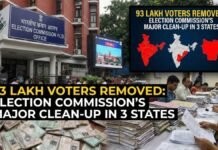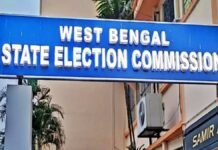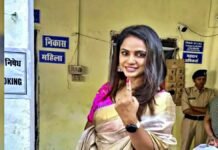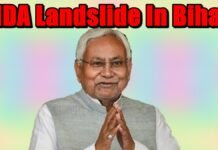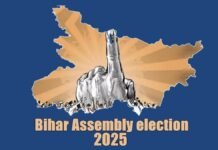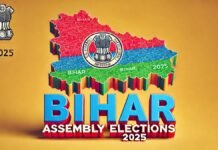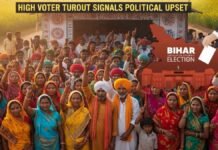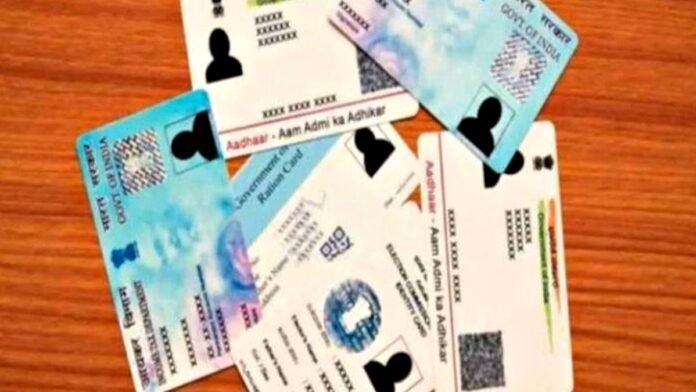
Key Points
- Election Commission permits voters to use 12 alternative photo IDs if voter card unavailable
- New directive applies to voters registered in electoral roll but unable to produce voter ID
- Acceptable documents include Passport, Aadhaar, Driving License, PAN Card, and 8 other IDs
- Decision aims to ensure no citizen deprived of voting rights due to documentary issues
- Officials will thoroughly verify identity against electoral roll at polling stations
- Special privacy arrangements for women wearing burqas or veils with female polling officers
- Commission emphasizes transparency and security in verification process
- Major convenience for voters who lost voter cards or couldn’t obtain new ones in time
- Name must be registered in voter list as mandatory requirement for casting vote
- Voters urged to carry valid photo identification to polling stations for smooth process
Patna: The Election Commission of India has issued a significant clarification expanding voting accessibility by officially permitting voters to cast their ballots using any of 12 alternative photo identification documents if they are unable to produce their voter ID cards. This comprehensive directive addresses a longstanding concern about potential voter disenfranchisement due to missing or unavailable voter identification cards.
Eligibility and Core Requirements
The Election Commission’s new arrangement specifically applies to voters whose names are properly registered and included in the electoral roll (voter list) but who, for various legitimate reasons, cannot present their official voter ID cards at polling stations. This distinction is crucial—the alternative identification provisions do not bypass the fundamental requirement that voters must be registered in the electoral roll to exercise their franchise.
Common scenarios where voters may need alternative identification include lost or stolen voter ID cards, damaged cards that have become illegible, situations where voters are away from their registered constituency and unable to access their cards, delayed issuance of new voter ID cards for first-time voters or those who recently relocated, or emergency situations where voters inadvertently left their voter cards at home on election day.
The Commission explicitly stated that this arrangement serves a democratic imperative: ensuring every eligible voter has the opportunity to exercise their constitutional right to vote without facing barriers created by technical or documentary deficiencies. This philosophy reflects the Commission’s commitment to balancing security concerns with maximum voter participation.
Complete List of 12 Acceptable Alternative Identity Cards
The Election Commission has specified the following 12 photo identification documents as valid alternatives to voter ID cards:
Passport issued by the Government of India serves as one of the most universally accepted forms of identification, containing comprehensive personal details and a photograph for verification purposes.
Driving License issued by state transport authorities provides valid identification for voters who hold valid or expired licenses, as the document contains essential personal information and photographs.
Aadhaar Card issued by the Unique Identification Authority of India (UIDAI) has become one of India’s most widespread identification documents, linking biometric data with personal details.
PAN Card (Permanent Account Number) issued by the Income Tax Department for tax purposes doubles as valid photo identification despite its primary financial function.
Bank or Post Office Photo Passbook that includes the account holder’s photograph serves as acceptable identification, particularly beneficial for voters in rural areas who may have limited access to other ID documents.
Government-issued Photo ID Card encompasses various identification cards issued by central or state government departments, ministries, or public sector undertakings to employees or beneficiaries.
Pension-related Document with Photo includes pension payment orders, pension cards, or pensioner identity cards issued to retired government employees or welfare pension recipients.
Health Insurance Smart Card issued under government health insurance schemes such as Ayushman Bharat provides valid identification for scheme beneficiaries.
Government Service Center (CSC) Smart Card issued to Common Service Center operators and authorized personnel qualifies as acceptable identification.
MGNREGA Job Card (Mahatma Gandhi National Rural Employment Guarantee Act) with photograph serves as identification for rural workers enrolled in this employment guarantee scheme.
Photo ID Card on the Electoral Roll refers to specially issued electoral photo identity cards that may differ from standard voter ID cards but are linked to electoral registration.
Unique Disability ID issued by the Department of Empowerment of Persons with Disabilities under the Ministry of Social Justice and Empowerment provides identification for persons with disabilities registered under government welfare schemes.
Verification Process and Security Measures
The Election Commission has emphasized that robust verification procedures will accompany this expanded identification acceptance policy. Election officials stationed at polling booths will conduct thorough examinations of whatever alternative identification document voters present, ensuring the integrity and reliability of the voting process remains uncompromised.
The verification protocol requires polling officials to carefully compare the photograph on the presented identification document with the voter’s physical appearance, confirm that personal details (name, age, address where applicable) match information recorded in the electoral roll, and ensure the identification document appears genuine and has not been tampered with or fraudulently produced.
Officials have clear instructions to permit voting only after satisfactory verification that the voter’s identity and name match the electoral roll entries. This stringent approach balances accessibility with security, preventing potential electoral fraud while removing genuine barriers to voting participation.
The Commission has assured citizens that these verification procedures, while thorough, will be conducted efficiently to avoid creating long queues or delays at polling stations. Adequate training and clear guidelines have been provided to polling personnel to ensure consistent and fair application of verification standards.
Enhanced Inclusivity and Voter Convenience
Election Commission officials believe this directive significantly enhances both inclusivity and convenience within India’s electoral process. The policy particularly benefits several vulnerable voter categories who previously faced potential disenfranchisement.
Voters who have lost their voter ID cards through theft, misplacement, or natural disasters now have alternative pathways to exercise their franchise without the stress and uncertainty of trying to obtain replacement cards on short notice. Similarly, first-time voters or those who recently changed their constituency may find themselves waiting for new voter ID cards that arrive after election dates—these voters can now participate using alternative identification.
Senior citizens and persons with disabilities who may face challenges in maintaining or regularly updating voter ID cards gain additional security through multiple acceptable identification options. Rural voters who may have limited access to voter ID card issuance centers but possess other government documents like MGNREGA job cards or post office passbooks benefit significantly from this flexibility.
The Commission has specifically appealed to all voters to carry a valid photo identification card before reaching polling stations to ensure a smooth, efficient voting process. Voters should verify that their chosen identification document contains a clear, recognizable photograph and that personal details are legible and accurate.
Special Provisions for Women Wearing Veils or Burqas
Recognizing India’s cultural diversity and respecting religious practices, the Election Commission has established special arrangements to ensure the identification process for women wearing veils or burqas maintains their dignity, privacy, and comfort while fulfilling security requirements.
The Commission has mandated that female polling officers and female polling assistants will be specifically deployed to conduct identification verification for women voters wearing veils or burqas. This ensures the identification process can be conducted in a confidential, respectful manner that honors women’s modesty preferences while confirming their identity.
The verification procedure will occur in designated private areas or screened sections within polling stations, shielded from public view and male officials. Female polling staff will request that women briefly reveal their faces for photograph comparison with identification documents, conducting this process with sensitivity and minimum exposure time.
This thoughtful accommodation reflects the Election Commission’s commitment to ensuring that religious or cultural practices do not become barriers to democratic participation. The provision enables women who observe purdah or wear burqas for religious reasons to vote without compromising their personal beliefs or facing uncomfortable situations.
Mandatory Electoral Roll Registration Requirement
While the Election Commission has expanded acceptable identification options, it has simultaneously reinforced the absolute requirement that voters’ names must be properly registered in the electoral roll to cast votes. Alternative identification documents do not circumvent this fundamental prerequisite—they merely provide flexibility in proving identity for those already registered.
This clarification addresses potential confusion about whether alternative IDs might enable voting without prior electoral registration. The answer is definitively no—electoral roll registration remains the foundational requirement for voting eligibility. Alternative identification documents simply offer registered voters multiple ways to prove their identity at polling stations.
Voters uncertain about their electoral roll registration status should verify their names through the Election Commission’s online portal, the National Voters’ Service Portal (NVSP), or by contacting their local Electoral Registration Office. Those discovering they are not registered should complete the registration process well before election dates to ensure their voting rights.
Transparency and Democratic Principles
The Election Commission’s decision to permit 12 alternative photo identification documents represents a significant step toward strengthening democratic participation while maintaining electoral integrity. This balanced approach acknowledges practical challenges voters face while preserving robust verification standards that prevent fraud.
By explicitly listing acceptable identification documents and establishing clear verification procedures, the Commission has created transparency that empowers voters to prepare appropriately and reduces arbitrary decision-making by polling officials. Voters now have certainty about which documents will be accepted, enabling informed preparation before election day.
This policy evolution demonstrates the Election Commission’s ongoing efforts to adapt electoral administration to India’s diverse social, economic, and geographic realities. By removing unnecessary barriers while preserving security, the Commission advances the constitutional vision of universal adult franchise that forms the bedrock of Indian democracy.
Voters are encouraged to familiarize themselves with these provisions, ensure they carry appropriate identification to polling stations, and exercise their democratic rights with confidence that documentary challenges will not prevent their participation in India’s electoral process.



































